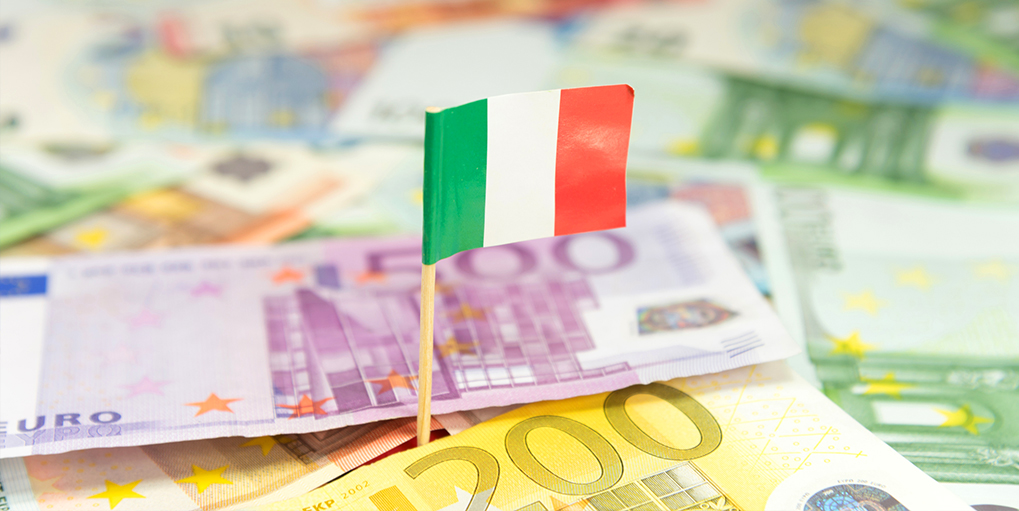Italy is known for a great many things. Italy is known for Rome and the Colosseum. It’s known for the Vatican. It’s known for the boot. Italy is known for art and wine and pasta too. Italy is also known for political turmoil. Italy has a new government. Keep in mind, the nation has had over 60 government changes since WWII. It happens, on average, just about every year. Italy has spice. Its new government is anti-establishment and is threatening to leave the European Union.
Italy is also known for debt. That is a big risk for Europe and the Euro currency as well as the threat of global contagion. Europe has been dealing with unresolved internal issues since the Financial Crisis in 2008. Remember the PIIGS (Portugal, Italy, Ireland, Greece & Spain)? The term arrived during the European debt crisis which hit a boiling point back in 2011. That crisis centered around Greece, but spread across the continent. Ultimately, the European Union provided some form of insulated protection to its members while allowing Greece to restructure its debt with strict austerity. Similar austerity measures, while not as severe, were imposed elsewhere in Europe. As a result, Ireland is now pretty healthy, while Spain and Portugal have improved significantly, although Spain is facing more political issues. The only major exception has been Italy where little has changed. Italy has well over $2 Trillion in debt outstanding, making it the third largest debtor nation despite the fact that it ranks just ninth in the world by GDP.
For signs of financial stress, you look to the Bond Market. Italian bond yields spiked on Tuesday. Yields rise when bond prices fall. It was the largest yield increase since 1992. But it proved temporary, at least for now. Italy was able to get through its debt auction just fine later in the week, which brought calm to European markets. The Bond Market is an early detector of trouble. The pricing of the Italian bonds reflected some of the pessimism. The spread of Italian interest rates over the lower risk German bonds is nearly 3%, the highest spread since 2013. But bids there were, which is key, for now. The Bond Market is an important tell. The ECB said it has no plan to intervene in Italy. Italy needs money and investors bought its bonds. So far, it’s still functioning. That is indeed good.
Need us not forget, Great Britain is still going through the process of exiting the European Union. The Brexit process takes time, but the parties have yet to agree upon the end game. This remains a big wildcard for Europe and the global economy at large. An important item, Britain was never on the Euro currency. Italy is. The threat of Italy now leaving has created some additional stress in the system. It is still remote at this point. Polls show 2/3 of Italians want to remain in the European Union.
What’s the future for the Euro currency? I ask myself this daily. What was considered to be the global alternative to the US Dollar upon its inception in 1999 has proven that it is not. The Euro trades at a 1-year low against the Dollar, currently at $1.16. The Euro traded as high as $1.45 in 2011 and as low as $1.03 last year. To put that into perspective, a hotel in Rome that charges 300 Euro per night would have cost $435 in 2011. That same room costs $348 today. The Dollar strength/Euro weakness is bad for American exports but is great for European vacations.
The US Stock Market continues its volatile price action. The threat of trade wars and European struggles contribute to the bumpiness. But the US economy remains in very solid shape, as evidenced with the May job report. Speaking of May; the old Wall Street saying of “sell in May and go away” is making its rounds again. We expect this volatility to stick around a bit longer into Summer. ‘Tis the season. We’re all over it.
Have a nice weekend. We’ll be back, dark and early on Monday.
Mike







